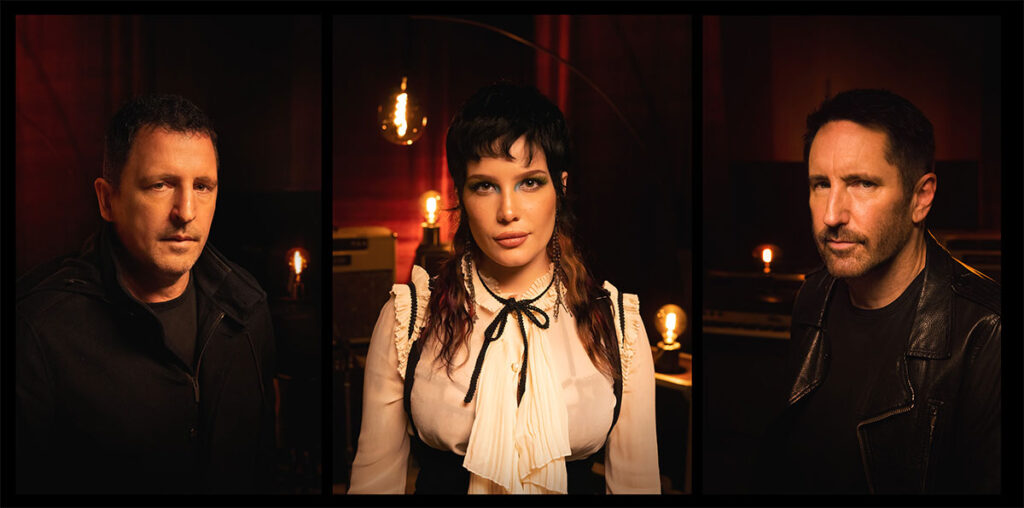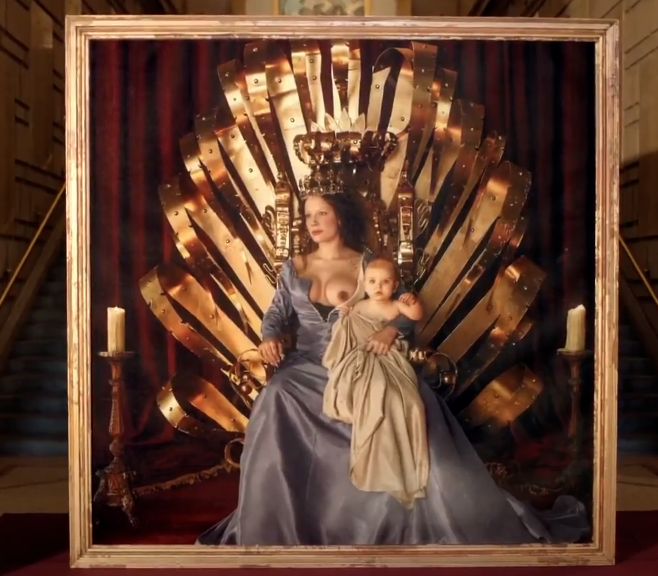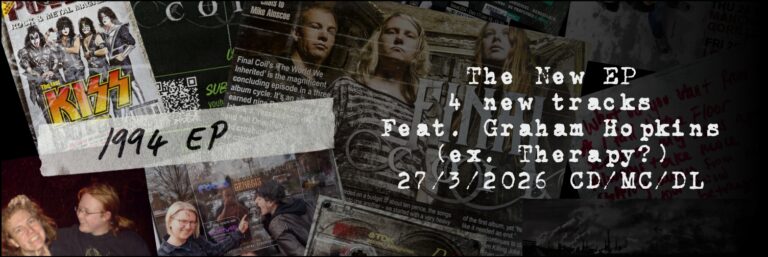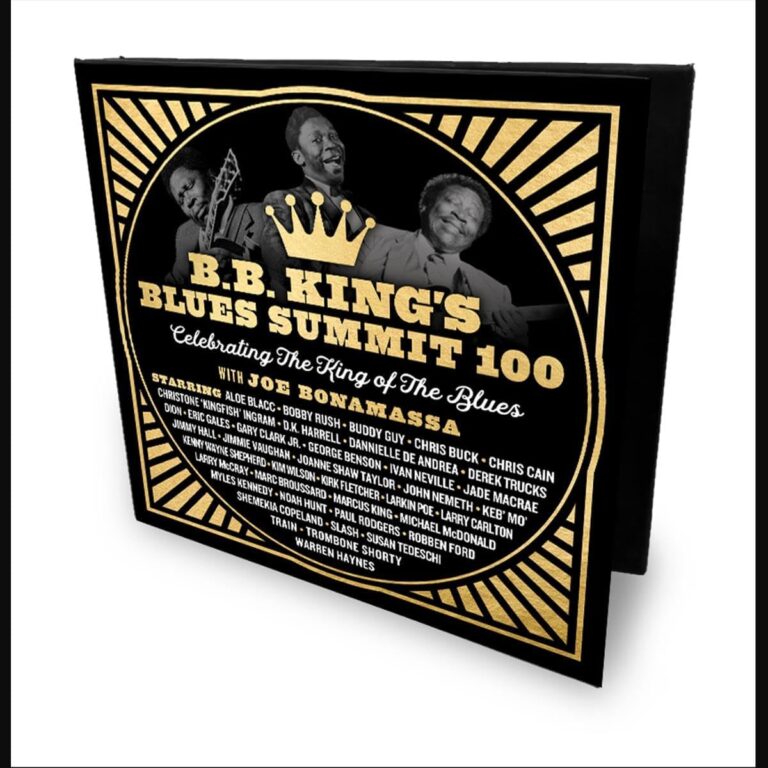For the rock fan, it is easy to dismiss pop music as anathema – exploitative and mass-produced – despite the genuine art that goes into producing something that is both full of heart and acceptable to the masses. For sure there is much in the charts that is banal, but when a pop artist chooses to break out of the formula, the results can be genuinely compelling. Such is the case with Halsey’s latest opus If I Can’t Have Love, I Want Power. In all honesty, Halsey had never crossed my radar until it was announced that she was working with Trent Reznor and Atticus Ross, the creative core of Nine Inch Nails (not to mention highly in-demand soundtrack artists), and it is a remarkable collaboration in many ways. For sure, Reznor is an interesting producer and his work in this field has frequently sought to bring out the best of the artists with whom he works. While, perhaps inevitably, certain stylistic tics emerge that easily identify his involvement, his tastes and skills are eclectic enough that the artist’s voice remains firmly to the fore – something that is very much the case with Halsey.
A concept album dealing with the darkness and the light of pregnancy, If I Can’t Have Love, I Want Power is as perfect an example of an artist flexing their creative muscles as you’re likely to hear and Halsey’s choice of Reznor and Ross as a production team is inspired, adding depth to her powerful compositions and, when the track calls for it, providing access to the likes of Lindsey Buckingham, Dave Grohl and David Sitek. Which is not to say that Halsey in any way needs star power to make a success of the album, and each of the guests is clearly there to service her vision rather than to bolster it.
The album opens with the haunting The Tradition, a stark piece that pairs Reznor’s instantly-identifiable piano with Halsey’s gorgeous voice, layering vocal upon vocal, to deliver a melody that sits long in the mind after the album has finally spun to a halt. It’s one hell of an opening gambit, and while the heavily processed vocals cast a nod to the charts, it’s a dark and fiercely intelligent piece that is more Ghosts I-IV than Gaga. The pace picks up on the tense Bells In Santa Fe and although it’s Halsey’s remarkable voice that remains the focus, the synths slowly edge into the frame with a distorted industrial soundscape emerging at the conclusion. It segues into the hefty grind of Easier Than Lying, a track driven by heavily distorted bass that feels caught between With teeth-era NIN and Melissa Auf Der Maur’s solo work. It also flat out rocks. A very different track follows as the queasy percussion of Lilith offers a twisted vision of high-charting pop, Halsey deliberately employing the heavily processed style commonly found on MTV, only to sabotage it with a lyric riven with a mix of self-loathing and F bombs. Similarly, Girl Is A Gun is industrial-strength pop, recalling the period in Madonna’s career when she managed to relentlessly chart, whilst simultaneously exploring her eclectic tastes with aplomb.
Having allowed her more mainstream tendencies to run riot, Halsey brings in David Sitek (TV On The Radio) to lend his guitar to You Asked For This, a gritty rock number that sits somewhere between Smashing Pumpkins and NIN. In contrast, the picked acoustic of Darling is provided by ex-Fleetwood Mac guitarist (and previous NIN-collaborator) Lindsey Buckingham. It’s a moment of calm amidst all the sturm und drang and it does much to recall that colossus of pop, Rumours. Stripped back to grand piano and voice, 1121 is a gorgeous song speaking to that nagging sense of self-doubt that threatens to unsettle us all from time to time. Waiting in the wings, however, is Honey, which sees long-time Reznor friend Dave Grohl pop up on drums, the whip crack of his drums propelling the piece forward with real vigour. Superficially a pop song, albeit more in the vein of Bring Me The Horizon’s more recent excursions than your typical chart fare (think Amo), it has real bite in the lyrics given greater depth thanks to Halsey’s strong vocal performance.
Musically, the subtle Whispers cleaves closer to the soundtrack work Trent and Atticus produced for The Social Network and Gone Girl as Halsey details the voices that whisper disparagement even as you are seeking to do something great. Out of the darkness comes strength, however, and the defiant I Am Not A Woman, I’m A God is set to a fantastic industrial-synth backdrop caught between Gary Numan and Depeche Mode. A huge squall of guitar slashes across the album’s surface to introduce the bitter sentiments of The Lighthouse. Halsey employs her smokiest tones here, and it’s hard to argue with the brilliantly subversive act of placing so brutal a musical backdrop right at the heart of the mainstream. It leaves the subtle Ya’aburnee to provide a coda that sees Halsey emerge calm and reflective after the dark night of the soul the album appears to represent. It’s a beautiful final moment, leaving the listener to emerge blinking into the daylight once more.

A powerful album that takes all the elements you expect from the pop world and turns them on their head, If I Can’t Have Love, I Want Power sees Halsey producing a genuinely thrilling and intelligent album. When you consider how often heavy rock bands have played with pop melodies (and received great praise in the doing), it is interesting to hear what happens when a successful pop artist clothes their music in heavy rock and industrial armour, and while there are those who will disparage it as somehow “unreal”, the loss is very much theirs. Halsey is clearly a capable and daring musician and her choice of production team, while inspired, has only served to bring her vision to fruition, rather than directed what is very clearly a personal journey. Forget all the stupid justifications of “I don’t normally like X but…” and simply enjoy this for what it is – an incredible album made by a talented artist. 8.5




